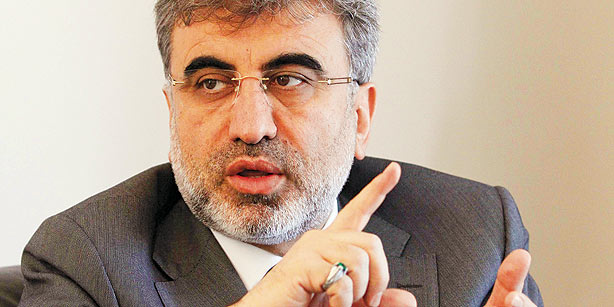
South Caucasus, Trans-Anatolia, Nabucco-West: Shaping a Pipeline Corridor to Europe
Publication: Eurasia Daily Monitor Volume: 9 Issue: 108
By:

The Azerbaijani-Turkish Trans-Anatolia gas pipeline project (TANAP) has become the basic component of the EU-backed Southern Corridor for Caspian gas to Europe. Shortly after the signing of the Azerbaijan-Turkey memorandum of understanding (MOU on December 26, 2011), the European Commission incorporated TANAP into the planning for the Southern Corridor.
For their part, Shah Deniz gas producers in Azerbaijan need to expand the capacity of the South Caucasus Pipeline (SCP), which those same producers own and operate. That line runs 442 kilometers through Azerbaijan and 248 km through Georgia since 2006. It runs parallel to the Baku-Tbilisi-Ceyhan oil pipeline, up to the Turkish border where SCP links up with Turkey’s pipeline system. (The South Caucasus Pipeline is also known as Baku-Tbilisi-Erzurum pipeline, although the SCP stops at the point of connection with the Turkish system on the Georgian-Turkish border).
The TANAP project, however, presupposes a link-up in Turkey with the proposed Trans-Anatolia pipeline, not with the existing Turkish system. Unlike the existing Turkish system, TANAP would be built as a dedicated pipeline for Azerbaijani gas exports (and potentially Turkmen gas transit), majority-owned and operated by Azerbaijan in partnership with Turkey on Turkish territory. SCP can be the connecting link between Azerbaijan and TANAP.
In any case, Shah Deniz gas producers need pipeline capacity to accommodate at least the export volumes from that project from 2017 onward. The Shah Deniz producers’ consortium and the SCP pipeline consortium are distinct entities, but their shareholder composition is identical: British Petroleum (BP) and Norway’s Statoil with 25.5 percent each; Azerbaijan’s State Oil Company, Total of France, Russian Lukoil and Iran’s Naftiran with 10 percent each; and Turkish Petroleum with 9 percent of the shares. BP is the technical operator of both the Shah Deniz extraction project and the SCP pipeline.
On May 30, BP announced plans to expand SCP’s capacity from 7 billion cubic meters (bcm) annually at present to 23 bcm per year by 2017, for export to Turkey and via Turkey to Europe. In this context, BP made public a report on the potential environmental and social impact of expanding SCP’s capacity on Georgian territory. Presumably, a similar impact assessment will follow regarding SCP’s section in Azerbaijan. In Georgia, meanwhile, public explanatory meetings are scheduled to start on July 19 in Tbilisi (Interfax, May 30; BP Georgia, “Environmental and Social Impact Assessment,” May 2012, www.bpgeorgia.ge).
SCP has operated from 2006 to date far below its capacity (most sources rate SCP’s existing capacity at 8 bcm per year). The pipeline has delivered Azerbaijani gas to Georgia and Turkey from Phase One of the Shah Deniz production. Shah Deniz Phase Two necessitates the tripling of SCP’s capacity for export. SCP’s starting point is near Baku at Sangachal, the reception terminal for offshore gas from Shah Deniz, potentially also for “non-Shah Deniz” Azerbaijani gas in the future.
Apparently, all Shah Deniz producers agree on expanding SCP’s capacity. BP is acting on the collective behalf of both consortiums (extraction and pipeline) regarding SCP’s expansion. The producers’ consortium, however, seems far from a consensus on the transportation solution beyond the Georgian-Turkish border. Azerbaijan is strongly placed to promote the Trans-Anatolia dedicated pipeline. Meanwhile, BP seems to be the only one (publicly at least) to seriously consider using Turkey’s state-owned Botas pipelines, as part of BP’s South East Europe Pipeline (SEEP) non-strategic concept for export to Central Europe. The producers’ consortium considers at the same time an equally non-strategic route via Greece to Italy, instead of Central Europe. Whether Central Europe or Italy is the ultimate destination, Azerbaijani gas must flow through SCP to Turkey, then across Turkey through either TANAP or Turkish state-owned Botas pipelines, before reaching EU territory.
TANAP is Azerbaijan’s initiative for a partnership with Turkey. The Turkish government has responded positively, but it is a tough negotiator in moving from a nonbinding to a binding agreement with Azerbaijan. In this situation, BP’s country manager for Turkey, Bud Fackrell, reaffirms that BP would use Botas pipelines (with upgrades by BP) in Turkey, if the Trans-Anatolia pipeline is delayed (TodayAz, Bloomberg, citing Sabah, June 4). This is the latest in a series of statements from BP representatives that can be interpreted as seeking to discourage TANAP or Nabucco-West. Shortly before this, BP’s chief of refining and marketing, Iain Conn, and BP spokesman Toby Odone were quoted with statements casting doubt on Nabucco-West’s viability (EurActiv, May 29).
Azerbaijan’s State Oil Company (SOCAR) has expressed its disagreement with BP over such statements. According to SOCAR’s vice-president, Elshad Nassirov, BP has responded that it regrets such statements and that they only reflect personal opinions. Interviewed in Vienna’s leading daily, Die Presse, Nassirov explains Azerbaijan’s preferred export options. The export pipeline’s capacity should accommodate future volumes of Azerbaijani non-Shah Deniz gas, as well as Turkmen gas transit in an ideal-case scenario. The Trans-Anatolia pipeline is designed with scalable capacity for future gas exports from Azerbaijan’s other projects, in addition to Shah Deniz gas. Azerbaijan is prepared to cover a lion’s share of investment, ensuring “financial solidity” of the Trans-Anatolia project. A dedicated pipeline, as well as reaching the Baumgarten continental gas hub near Vienna through Nabucco-West, are in Azerbaijan’s interests (Die Presse, May 29).
In the final analysis, all players are to some extent adjusting their choices to the TANAP project and its consequences. As the country of origin of the gas, Azerbaijan is also in a position to make a major strategic investment in the Trans-Anatolia project. No other player combines these advantages. Any pipeline farther downstream in the planned Corridor to Europe can only be derivative of the Trans-Anatolia pipeline – i.e., receive gas of Azerbaijani provenance from an Azerbaijan-dedicated pipeline. Ankara favors the Nabucco-West option over other possible continuation options from TANAP into Europe. This also means a major, and growing, transit opportunity for Turkey – unless Ankara misses the opportunity by stalling the completion of the Azerbaijan-Turkey inter-governmental agreement on TANAP.




